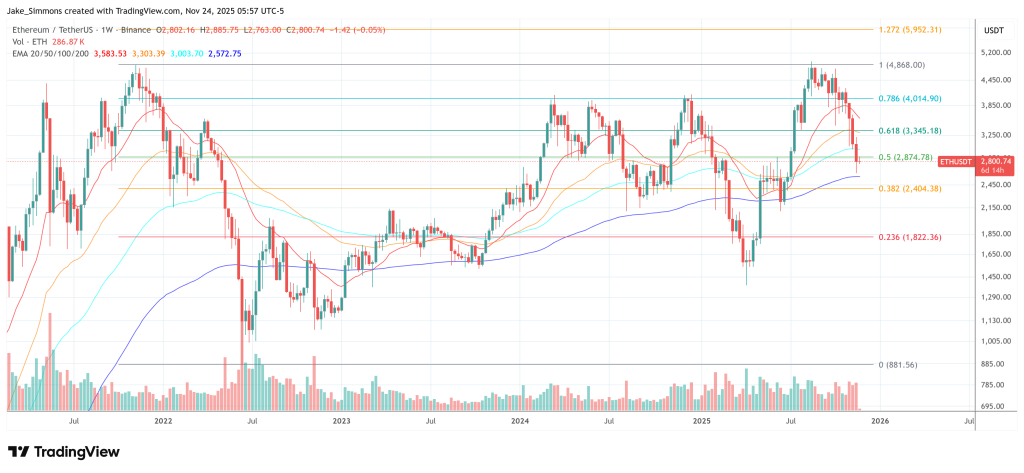
Ethereum co-founder Vitalik Buterin has sounded the alarm on X’s new “display account country” transparency tag, arguing that the feature will quickly be compromised by impersonation and expose some users to unacceptable privacy risks. X recently expanded its “About this Account” screen to allow users to view metadata such as account country and region along with creation details. This is a move that positions the platform as a tool against tampering and fraud.
Ethereum founder sounds the alarm
Buterin’s initial post, while acknowledging the short-term turnaround, framed the system as vulnerable to hostile pressure. “There will be many positive effects in the short term,” he wrote. He also predicted that sophisticated operators will adapt faster than platforms can strengthen their signals. “Sophisticated attackers will find ways to pretend they’re from a country they don’t belong to,” he said, pointing to rentable passports, phone numbers and IP infrastructure that can be used to fabricate plausible origins.
His core asymmetry argument is blunt: “It’s moderately difficult to get a million accounts with a fake location, but easy to get one account with a fake location and then a million followers.” In his view, this feature will move from authenticity checks to theaters, with foreign influential accounts displaying Anglosphere tags to increase credibility. “In six months, all political troll accounts with names like ‘Defend Western Civilization’ that are actually based in[a random Eurasian country]will have ‘United States’ or ‘United Kingdom’ as their location tag.”
The Ethereum founder stressed that he was describing incentives, not endorsing them, saying, “This is not what I want, it’s what I think will happen.” Instead, he wants a system of provenance that makes “more visible how people from different communities think about different issues in ways that aren’t easy to impersonate” and defines communities through broader, new evidence rather than “a narrow set of very readable qualifications like countries.”
He concludes that “it is not easy to make such systems adversarially robust,” a criticism that is consistent with the cryptographic security view that identity signals decay when attackers can purchase or synthesize them at scale.
Shortly after, Ethereum founders doubled down on their opposition to consent and security. “I’ve thought about this more, and I think our responders are right that it’s wrong to reveal your country without consent without providing an opt-out option (even ‘deactivate your account’),” he wrote.
While broadly pointing out that national disclosures do not identify individuals, he cautioned that edge cases were important: “There are people who are at risk even if just a few bits are leaked, and their privacy should not be retroactively violated without redress.” X privacy advocates share this concern, especially for users in authoritarian or conflict environments who worry that location metadata could support harassment, surveillance, and legal targeting.
X has already faced questions over accuracy and implementation, with reports that some country tags appeared to be incorrect and the platform adjusted visibility while promising fixes. This instability reinforces the warnings of Ethereum’s founders. When tags are inferred from IP, app store, and communication data, they are vulnerable not only to intentional spoofing, but also to routine distortions such as VPN use, SIM swapping, and account reselling.
At the time of writing, Ethereum was trading at $2,800.

Featured image created with DALL.E, chart on TradingView.com

editing process for is focused on providing thoroughly researched, accurate, and unbiased content. We adhere to strict sourcing standards, and each page is carefully reviewed by our team of top technology experts and experienced editors. This process ensures the integrity, relevance, and value of your content to your readers.


